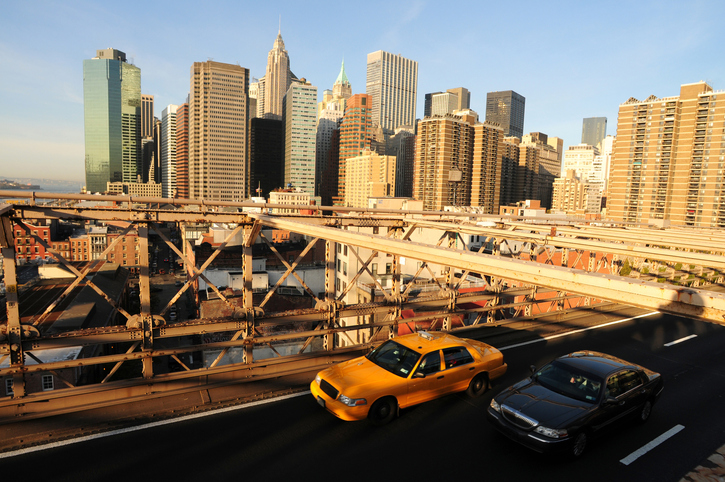A federal appeals court on Tuesday said New York City can ban advertising inside vehicles driven for companies such as Uber and Lyft, handing a victory to the millions of passengers who it said find such ads “extremely annoying.”
Reversing a lower court ruling, the 2nd U.S. Circuit Court of Appeals in Manhattan ruled 3-0 that the ban did not violate the First Amendment, in a case brought by a technology company that places digital content inside ride-sharing vehicles.
Chief Judge Robert Katzmann called the two-decade-old ban a reasonable means to advance the city’s substantial interest in “improving the overall passenger experience.”
The ban included an exception for Taxi TV, which the city’s Taxi and Limousine Commission lets medallion cab owners display to offset the cost of installing mandatory technology to help passengers monitor their fares and pay by credit card.
Vugo Inc, the Minnesota-based plaintiff, sued New York City in 2015 over the ban, which it said unconstitutionally impeded its commercial speech rights.
Its ads differ from Taxi TV because passengers cannot turn them off or mute them. Vugo splits ad revenue with drivers.
A lawyer for Vugo had no immediate comment.
New York City’s law department, through a spokesman, said it was pleased the court upheld the ad rules, “which directly advance the city’s strong interest in promoting passenger comfort for its residents.”
The decision reversed a February 2018 ruling by U.S. District Judge Ronnie Abrams in Manhattan. She had said the ban lacked a “sufficient fit” with the city’s goal of shielding passengers from annoying ads, saying the city could have required on-off switches or mute buttons, and that Vugo’s ads were no more annoying than Taxi TV.
Katzmann, however, endorsed the city’s effort to help residents and visitors enjoy “peace and quiet” from the rear seat, and said the city was entitled as a policy matter to exempt yellow cab owners who upgraded their technology.
“The prohibition is the most direct and perhaps the only effective approach to prevent the harms of intrusive and annoying advertisements,” he wrote
Vugo filed a similar lawsuit against Chicago in February 2017. That case was dismissed in December 2018, according to court records.
The case is Vugo Inc v City of New York, 2nd U.S. Circuit Court of Appeals, No. 18-807.
(Reuters Connect – Reporting by Jonathan Stempel in New York; editing by Susan Thomas and Grant McCool)







